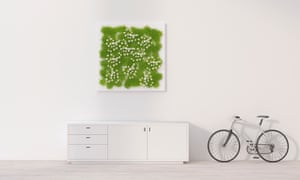What is Minimalism?
Minimalism, as a lifestyle trend, is a relatively new lifestyle trend which gained its popularity mostly via the documentary by Ryan Nicodemus and Joshua Fields Millburn, titled appropriately, “Minimalism: A Documentary About the Important Things.”
According to Ryan and Joshua, minimalism is “a lifestyle that helps people question what things add value to their lives” (Nicodemus). In many ways, it is a response to the unchecked consumerism prevalent in today’s society. Many of us, especially in developed nations like the US, have way too-big houses with way-too many, low-quality things in them. The minimalist approach asks people to question these objects and things in their lives and consider whether they bring value or happiness.
But why question this?
It’s as simple as two words: opportunity cost. The objects we own incur an opportunity cost of both money and time because using and maintain them takes money and time that could be used to do or buy something else (Jonathan Vieker).
The Trend of #Minimalism
Minimalism has become somewhat of a trendy “fad” now. People love posting on various social medias, bragging about the amount of stuff they *don’t* own. Some people even go to the extremes-giving up their personal homes, college diplomas, and any other possessions which can’t all fit in one stylish Scandinavian backpack. Many also buy into it because it is a more sustainable lifestyle. Having less things and investing in handmade, naturally sourced products reduces the environmental impact of your life. From tiny houses to white walls with one piece of furniture, minimalism has become a house decor trend too. It’s all about the aesthetic.

The items minimalisms do spend their money on and decide add value to their lives are often handmade, made out of raw materials, and aggressively simplistic (Chayka).
The Downside to Minimalism
Here’s the truth: the only people who can practice minimalism are people who can afford it
Wealth allows for risk taking, and living as a strict minimalist is definitely a risk. As Chelsea Fagan puts it in her article, “Minimalism: another boring product wealthy people can buy”, minimalism “allows you to take on some of the desirable aspects and morality of poverty without ever having to be poor.” If you are already living in a sparse home, you cannot afford to declutter. When you’re just trying to meet your basic needs, you are not considering what things add happiness or value to your life; you are considering what things keep your life going. When you have money, you can afford to have less and to make the objects you do have more aesthetically pleasing. It takes a lot to be a minimalist: social capital, a safety net, and access to the internet (Chayka).
“These people are still conspicuously consuming in mind-boggling ways, they’re just filtering it through the convenient prism of simplicity, and that allows their million-dollar wardrobes to somehow be aspirational” (Fagan)
Looking at your life and questioning whether the items you own add value and happiness to your life is not inherently a bad thing. In fact, questioning in life is extremely important. Buying more ethical, aesthetically pleasing items is not inherently bad either. Being a #minimalist can actually be a good thing. But as a society, we must recognize the limitations and inequalities to the minimalism trend instead of perpetuating unrealistic ideals.
-Nataley Williams
References:
Chayka, K. (2016, July 26). The Oppressive Gospel of ‘Minimalism’. Retrieved from https://www.nytimes.com/2016/07/31/magazine/the-oppressive-gospel-of-minimalism.html
Fagan, C. (2017, March 04). Minimalism: Another boring product wealthy people can buy. Retrieved from https://www.theguardian.com/lifeandstyle/2017/mar/04/minimalism-conspicuous-consumption-class
Jonathan Vieker, ViekerMusician, J., Edgar, J., R., Shaw, J., Bolle, M., . . . D. (2018, August 17). The Problem with Minimalism. Retrieved from https://jonathanvieker.com/problem-with-minimalism/
Nicodemus, R. (2015, July 12). Minimalism: An Elevator Pitch. Retrieved from https://www.theminimalists.com/pitch/